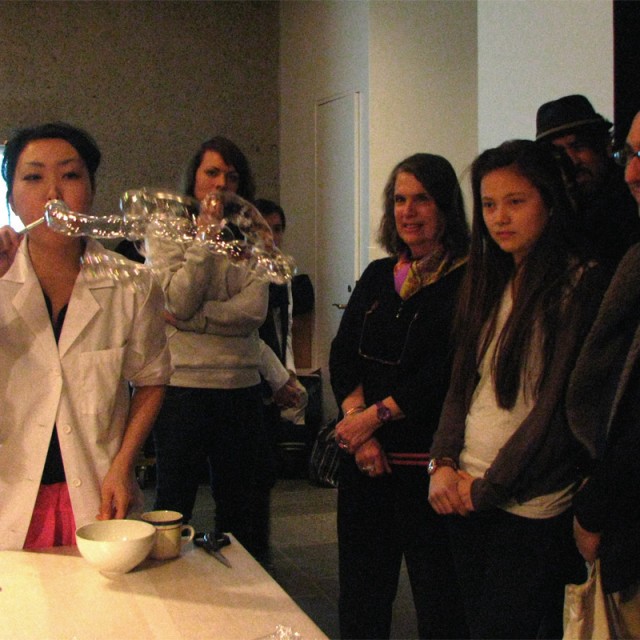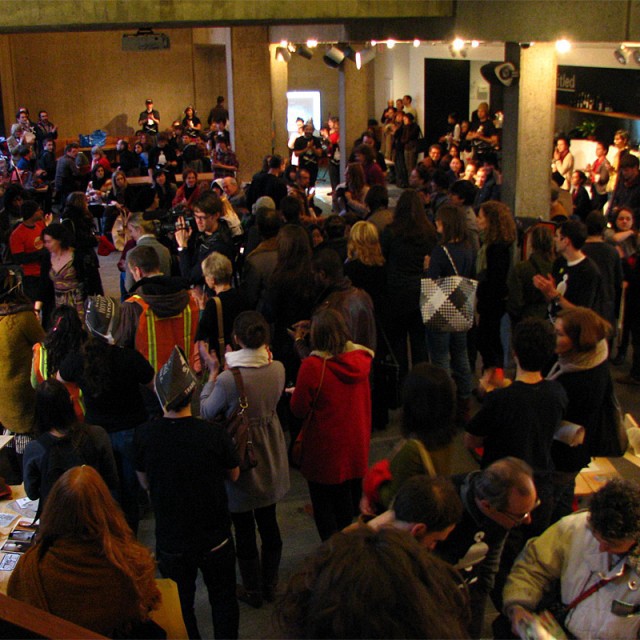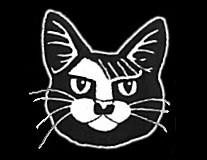1000 Ways to Pivot Your Startup
Have you figured out how to pivot your failed startup? There’s help! It’s Pivotrly!
Emily Gould and Sigrid Nunez Make Szechuan Green Beans
In the latest installment of what is somehow the Internet’s only cooking and book chat show, Emily Gould chats with author Sigrid Nunez about her new book, Sempre Susan: A Memoir of Susan Sontag, which is brand new, out this week, so get it right now, it’s short and terrific!
Cooking the Books is directed by Valerie Temple and shot and edited by Andrew Gauthier. You can see all the Cooking the Books episodes here or even subscribe via iTunes. Previously: Emma Rathbone Makes Strawberry Wafer Cookies; Doogie Horner Makes “Gettin’ Laid Lemonade,” Emily Gould and Tao Lin Make Raw Salad, Jennifer Egan makes macaroons.
Back It Up, Back It Up
I am always shocked by how many of my friends regularly lose everything digital that they own. You’re always crying from Tekserve! So yes: today is the day we tell you to back that ish up! (Back that assay up?) That being said, it’s very freeing to lose a computer’s worth of data! You get to start all fresh. But maybe you’re not up for that.
Trade School At The Whitney: Scenes From The New Barter Economy
by Russell Brandom

In a corner of the Whitney basement, Yuka Otani is teaching an edible glass workshop. She’s mixed together corn syrup and sugar, then she dips a metal loop into the mixture and starts to blow bubbles. They drift in the air and then plummet, hardening into something resembling plastic wrap. Twenty-five feet to her right, a philosophy professor from Brooklyn College halts a discussion of Kant to pull out a cordless reciprocating saw, a “Sawzall,” out of a garbage bag. “Rationality and critique are the philosopher’s sawzall,” she explains. Towards the front of the room, a 10-year-old boy is teaching a group of adults how to draw cartoons.
Everyone paid to be here, although not in the way you might think. It’s a barter school, so as their tuition tonight, students have brought in objects made themselves; contributions include a tie-dye shirt, a Phonekerchief, and two bouquets of white roses and anemone, bound with gaffe tape and bearing the inscriptions “#lohan” and “#tigerblood” in whiteout. Also, cookies. The school represents a new way of approaching education — and an increasingly tempting model for doing business off the economic grid. With online networks to smooth things along, barters can happen faster and on a larger scale than ever before, for anything from lighting equipment to a photography class. The goal is to make a living (or at least part of one) without dollars, banks and anything more than person-to-person transactions — a pretty radical idea, if it works.

This particular scene took place last Friday, when Trade School took over the Whitney’s downstairs cafe to highlight to their Kickstarter-funded residency at 32 Prince Street. (It’s still going through April 17th, if you want to check it out.) The final tally was 16 classes, 250 students and, most importantly, no money. Most of the teachers are friends of the founders, or a friends-of-a-friend. And since the usual professional expectations are nowhere to be found, everyone’s free to get weird. One of the most popular offerings paired famous artworks like Frida Kahlo’s Still Life with Watermelon with corresponding foods. Another, dubbed “Bad Dreams as Border Songs,” used a musical game of telephone to comment on U.S. Immigration policy. If you had paid money for this, you might feel cheated, but if all you did was bake a sheet of cookies, a quasi-educational happening might not sound so bad. It’s one of the perks of the barter economy: expectations are lower, so everyone can get away with a lot more. If you wanted to take a class in the philosophy of plumbing, this was probably the only way it was going to happen.
Getting people comfortable with that kind of barter is part of the point. The school is organized by OurGoods, a barter network that connects people in the city who want to trade just about anything. The network began as a way to supplement the budgets of artists with more time than money. (It’s a lot easier to stretch a theater’s funding if you can pay people with cake.) The site currently has almost 1,500 people on-board, a whole shadow economy that supplies goods and demands labor without any money changing hands. (Today’s offers include freelance soldering, tarot readings, and 150 track lights of varying sizes.) The only thing keeping it from getting even bigger is that most people still see this kind of commerce as, well… weird.
Most of the fun of this kind of project comes from imagining it scaled much, much larger. They’re creating a currency system, and whoever sets the rules to the system will come away with some near-magical powers. For example, as part of last year’s QEII, the Fed printed and distributed $650 billion, and almost all of it ended up with the bond departments of multinational banks. Give a fraction of the same cash-creating power to someone more interested in community-building and they could use it to fund a hospital, as some are already trying to do with Philadelphia’s Medicash program.
OurGoods isn’t as eager to play Fed as some of their colleagues, but they’re no less ambitious. The Prince Street school offers utilitarian classes, such as tutoring in DSLR cinematography and SEO optimization, alongside courses in non-Euclidean crochet. It’s not hard to imagine this kind of person-to-person skill-sharing taking over a whole portion of the education business. Why pay for a Photoshop class when all you need is a friend who can show you a few things? The difference may not matter much to you — either way, you learn a few things — but to an economist, it’s a massive, economy-destroying sea change. Things like Trade School don’t show up in GDP projections, and they don’t produce revenue. (Cookies don’t count, apparently.) They don’t get captured by larger industries because — unlike almost anything else in the capitalist world — they actively resist being worth any money. It’s a shift from marketplace to village, and good news for anyone with more time than money. And while 1,500 people might seem like a small marketplace, it makes for a pretty big village.
It strikes at the last two hundred years of industrial anthropology, which divides the world into things you have to pay for (like pork belly and gold) and things money can’t buy (like love and filial affection). Or, to put it in catchier terms: commodities and everything else. Turning something into a commodity is one of the more reliable money-making tricks in modern capitalism, whether the commodity is a social network or a South American aquifer, but it’s almost always a one-way street. Once we’re used to paying for something, we tend to keep paying for it. Barter systems are a step towards breaking down the distinction altogether. You could pay for a class in dollars, or you could pay for it with a trumpet, or by fixing the teacher’s car. In short, commerce gets a lot weirder.
…
Back at the Whitney, the New School Deleuze class has come down to lead a Critical Theory weaving class. Two tables of willing students are spread out before them, two to a loom, being instructed silently on weaving technique. Nearby, a woman in a striped shirt reads to the weavers in a clear, affectless tone from Deleuze’s A Thousand Plateaus: Capitalism and Schizophrenia:
A fabric presents in principle a certain number of characteristics that permit us to define it as a striated space. First, it is constituted by two kinds of parallel elements…
When she’s finished, a man with a toggle sweater and a Lithuanian accent takes over where she left off. The weavers do not seem to be paying attention to the speech. After a few minutes, they lower their heads, visibly oppressed.
In the next corner, an officious woman in a black dress is teaching economics for artists, with help from PowerPoint. She pulls up slides of supply and demand curves, opportunity costs and Porter’s Five Forces. She breaks down the price of a chair, in materials, overhead and labor costs — important information for any artisans in the audience. She’s the only person in the room with both an MBA and an MFA, and she’s spent most of her class time explaining how they’re not so different. Artists need to be businesspeople, and vice versa. The world’s more complicated than deciding whether you care about money or art. As she finishes, she pulls up an Adam Smith quote: “A work of art is a new thing in the world that changes the world to allow itself to exist.” She could be describing the event, the barter system or the Whitney itself, but she doesn’t say which.
She smiles. “If anyone has any questions, I’ll be right here.”
Russell Brandom once learned to make polenta in exchange for mopping a Transylvanian woman’s floor.
Donkey Saves Sheep From Dog
To Britain, where sometimes good things do happen: “Dotty the donkey from Scarborough is to receive a coveted PDSA Certificate for Animal Bravery after saving a sheep from a frenzied dog attack. Dotty and the sheep and Stanley will be accompanied at the presentation by owner Ann Rogers (63), who witnessed Dotty’s brave act.” The People’s Dispensary for Sick Animals, a Knifecrime Island veterinary charity, is celebrating the rescue during which Dotty “’galloped in to save her friend Stanley the sheep from being savaged’… Poor Stanley lost two teeth and suffered facial paralysis but is now fully recovered. He now sleeps in the same stable as Dotty…” You couldn’t make it up! I mean, you could, but why would you want to?
Flying While Brown: Just Don't Do It

Dear brown friends,
So by now you know: if you make noises, move about the plane, feel ill, talk to people in a non-English language, gesture, wear a backpack, or, now, spend your time on the plane “passing notes and writing in a notebook,” you will not arrive at your destination, as the allegedly brown passengers on this week’s Delta flight from D.C. to Oregon found out.
Please make a note of these forbidden behaviors. It might be best if you just drug yourself into oblivion while flying? But don’t get too drugged: if you slur your words or “act strangely,” you will also find your plane diverted. (And then the smokers on-board will really hate you when they have to get off, go through security again and get on another plane.) Also don’t have to pee really bad. That’s a mandatory diversion. At this time, all people aboard airplanes should sit silently and immobile, and then we will all get there on time. But especially you, brown friends. Thanks!
Best regards,
White People
Freedom Fighters! Obama, Reagan, Libya, El Salvador

Late in February, we asked: does the CIA have any idea what’s going on in the “Middle East” and “North Africa”? (Or are they, you know, behind everything?) Well! “Small groups of C.I.A. operatives have been working in Libya for several weeks as part of a shadow force of Westerners that the Obama administration hopes can help bleed Colonel Qaddafi’s military.” Oh and they are authorized to arm… Libya’s… rebels… which, well. Gosh. But it all worked out sort of okay, despite U.S. intervention, in El Salvador… thirty years later. And I’m sure the CIA ops in Pakistan are going to work out just great! (I’m not sure of that.)
Talking About The Young People Now
“What is so downright perplexing is that the young now seem so much more severely serious than the old. Even so much more conservative in a special sense — -the sense of honoring and cherishing the very best that’s in them — -like sincerity, openness, honesty and love. While the middle-aged so often express cynicism and self-disappointment.”
— Can you guess where that’s from? The answer may surprise you.
Everything Looks Like Hitler

Here you will find some cats that resemble Adolf Hitler. The fact that the papers are going so deep into the well for this material leads me to fear that we may be exhausting our natural Hitler-resembling resources at this point. Have we reached peak-looking-like-Hitler? It’s a worry. [Previously in “things that look like Adolf Hitler”]
Will Your New iPad Set You On Fire?
“Looking back I wish I never would have bought it.”
— El Paso consumer Hector Camacho, a former firefighter, agrees that the iPad is the hot new product of the season, claiming that the overheated device gave him a physical burn. Be careful out there, you trend-sucking Apple acolytes.
